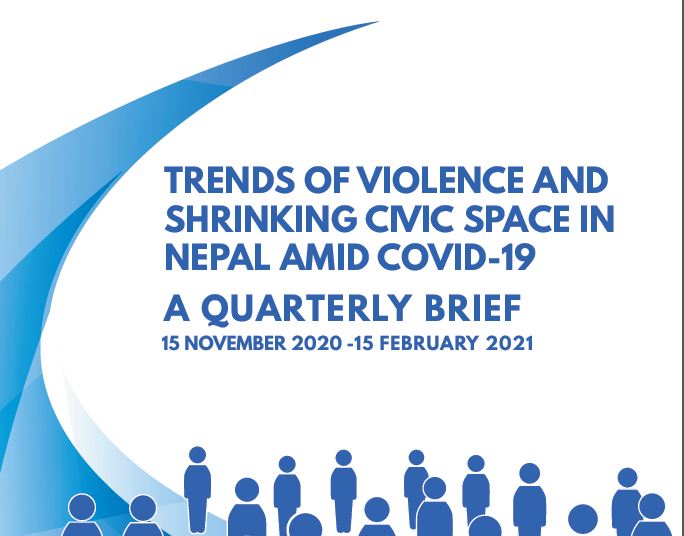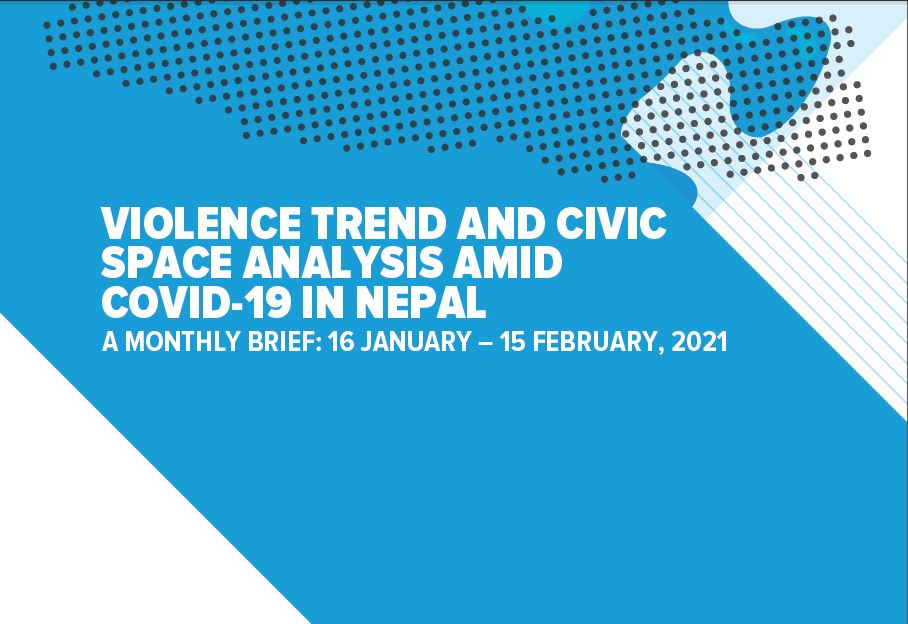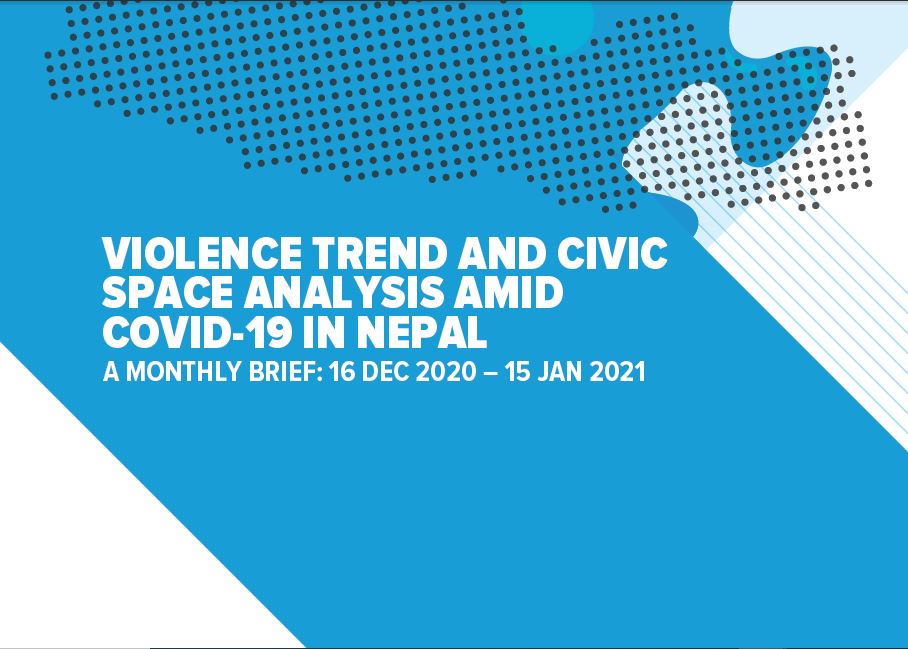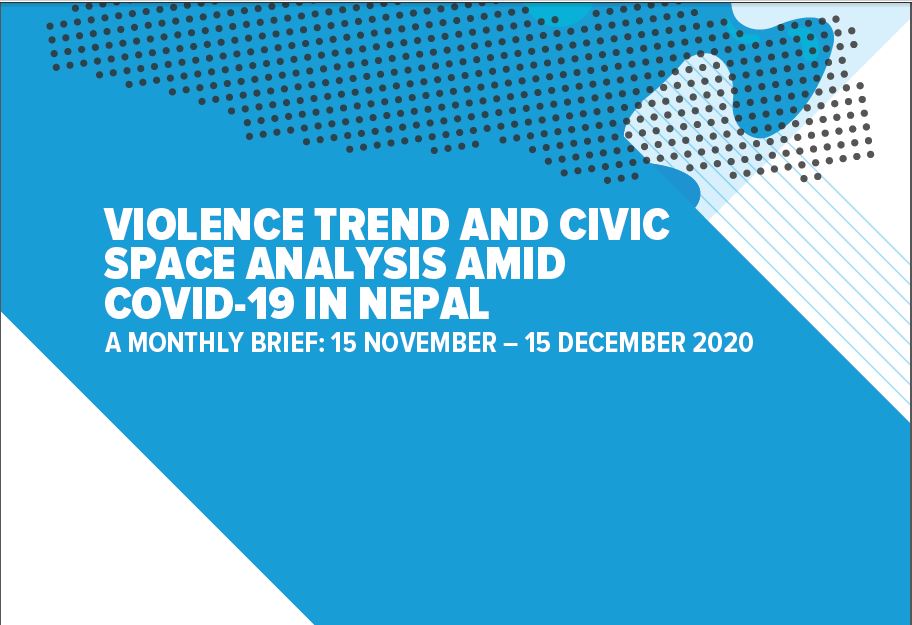Incident Reports
EDITORIAL: Prioritise rights
2018-04-23
Nepal
The National Human Rights Commission (NHRC) in its annual report for 2016-17, which was made public recently, has said there has been state of impunity in the country, largely due to political instability, unstable and weak governments, poor situation of implementation of the law and political patronage to the guilty of human rights violations and those involved in crimes. Impunity has been rife in the absence of failure to take effective legal action against those found guilty by the national rights watchdog and those punished by the court, says the report. The NHRC also says that the country has failed to move forward as expected in the last 10 years after the end of the 10-year old armed struggle launched by then Maoist rebels, as there has been little progress in addressing the war-era crimes. The points raised by the rights body are worth giving a serious thought.
Lack of implementation of laws and failure to act on NHRC’s recommendations and court verdicts make a really worrisome situation. The watchdog has said there has been low enforcement of Supreme Court verdicts and NHRC recommendations to the government (14.3 per cent full enforcement, 47.9 per cent partial enforcement and 37.8 per cent non-implementation), painting a bleak picture of human rights situation in the country. The state of impunity while has a direct negative impact on the rule of law and protection and promotion of human rights, it has affected the development of human rights culture. With the recent elections held under the new constitution adopted in 2015, we are hoping political stability and a strong government in the country. While we are expecting the country to embark on the path of development and prosperity, it is also time to lay strong emphasis on human rights issues.
Nepal’s election to the United Nations Human Rights Council for the term of 2018-2020 also means that the country now has an opportunity to prove its worth as an international contributor for the cause of human rights. As a member, Nepal has an international obligation to uphold human rights and monitor cases of human rights violations around the world. Nepal needs to seize the opportunity and lead by example by addressing human rights issues at home first. The NHRC has rightly observed the sluggish pace when it comes to resolving the cases of human rights violations committed during the decade-long civil war. Conflict survivors have been waiting for justice for long and the snail-paced progress has but made them increasingly concerned. Attorney General Agni Kharel’s recent commitment to amend the Transitional Justice Act and bring it in conformity with orders from the Supreme Court is a welcome move. During an international human rights conference recently held in Kathmandu also the issue of transitional justice was widely discusses with consensus on full consultation with victims’ groups while resolving the conflict-era cases. Apart from war-era cases, the government needs to strengthen institutions and mechanisms to uphold human rights and bring right violators to book. Reports of women and girls being subjected to torture have been rife. The state needs to act tough to control human rights violations.
Write, don’t scrawl
There is a general tendency in Nepal that most of the medical prescriptions hand-written by doctors or medical practitioners are incomprehensible even for a well-educated person. To ameliorate this problem, the Nepal Medical Council (NMC) has instructed all doctors and health practitioners to write medical prescriptions in clear handwriting. All the doctors are required to mention NMC registration number, name of patient and prescribed medicines clearly. The doctors should also lend their ears to the patients.
The NMC has also asked the pharmacists not to sell medicines if the prescriptions are not readable. Medicines should be sold only when name, amount and duration of medicines to be taken by patients are legibly specified. The health service providers should also keep patients’ records at least for five years after medical checkup. The council has also said it is illegal for a medical specialist to prescribe medicine of another faculty. If those instructions are duly followed by doctors and pharmacists, a lot more difficulties faced by the patients will be overcome. Pharmacists should not sell substitute medicines if they do not have the medicines prescribed by doctors.
National/Online Media
Related Reports
HRD Issues / Rautahat
Rautahat correspondent of Himalaya Television assaulted by crusher staff
August 22, 2023
HRD Issues / Saptari
Saptari journalist on continuous protest demanding protection of press freedom and action against attack on journalist
August 14, 2023
HRD Issues / Parbat
Arrest permission under cyber crime issued against journalist after raising issue of irregularity over social media
August 10, 2023
HRD Issues / Sunsari
Journalist issued threat in Sunsari over news report
Province 1, Sunsari, Barah
July 25, 2023
Related Trend Analysis
Analysis

THE NEPAL PEACE MONITOR ANNUAL REVIEW: 2020
October 25, 2021
Human Trafficking / LGBT+ Rights / GBV / Political / Children’s Rights / Senior Citizens’ Rights / HRD Issues / Human Rights / Interpersonal Violence / Governance / Covid-19 / Civic-Space / PwD





